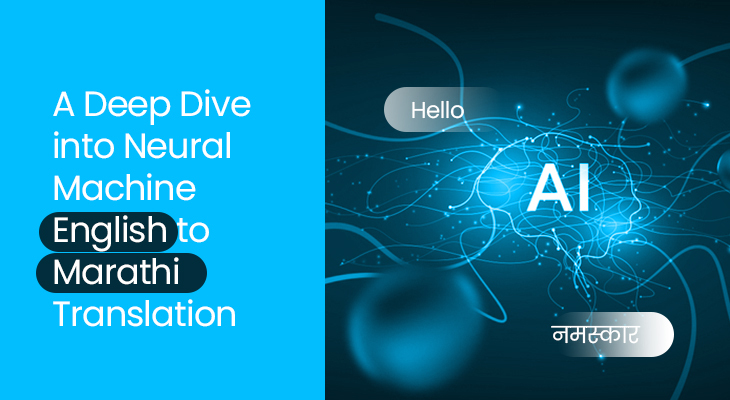If you ask citizens in any Indian city what makes public services frustrating, the answers vary. Some say delays. Others complain about paperwork. But a quieter issue sits underneath all of it. The language in which these services are delivered.
Take Maharashtra, for instance. Marathi is spoken in homes, in markets, in classrooms. It is the everyday language of millions. Yet when people open a government website or mobile app, what do they see? English. For someone who studied in English medium schools, this may not be a problem. For the large majority, it feels like a locked door.
And that locked door is avoidable. The solution is straightforward if you bring English to Marathi translation into the heart of public services.
Why is language not a side issue?
There is a tendency among decision makers to think of translation as a final coat of paint. Build the portal, set up the workflows, then hire someone to “translate.” The truth is different. Language decides whether people will even step inside.
When a citizen reads instructions in Marathi, the service feels like it belongs to them. They make fewer mistakes filling forms. They spend less time seeking help. They come back with more trust.
Ignore language, and you will see the opposite. Incomplete forms. Confused calls to helplines. A growing sense that the system is not built for everyone. This is not a theory. It happens daily.
The scale challenge and the role of technology
Of course, it is not easy to translate everything manually. Think of the volume: circulars, welfare program updates, FAQs, notifications, SMS alerts. The list never ends. That is why a machine translation API matters.
The value of an API is not in perfection. It lies in speed. The system can take large amounts of English content and push out a Marathi version instantly. Is it flawless? No. But it gives human editors a base text to refine. What once took weeks can now be ready in days.
And when APIs are integrated directly into websites or apps, citizens can flip languages with a click. Imagine an electricity board portal where a farmer can see tariff details in Marathi without waiting for translated PDFs. That kind of flexibility changes how people use services.
Why agencies still matter?
If machines can do so much, why bring in a website translation agency? Because language is not mathematics. Machines get the words right most of the time, but they do not sense tone or culture.
An agency ensures that a welfare scheme written in English does not sound stiff or alien in Marathi. They ensure that terms are consistent across all pages. They know when to use a formal word and when to keep it simple. And just as important, they manage updates.
Public services evolve constantly. A benefit amount changes. A new condition is added. If translations lag, citizens lose faith. Agencies prevent that gap by maintaining version control across languages.
Lessons from the pandemic years
One clear lesson came during the COVID-19 crisis. Information had to move fast. Health advisories, vaccination instructions, travel restrictions — they all had to reach citizens on time. In regions where material was released in local languages, compliance was higher. People wore masks, registered for vaccines, and followed rules because they understood them.
This is not a minor footnote. It is proof that translation can save lives. If something as urgent as a pandemic response benefits from language inclusion, why should everyday public services be treated differently?
A business leader’s lens
Now, let us flip the perspective. Think of this not just as a citizen issue but as a management decision. If you run a public platform or partner with government projects, you want adoption. More users. Fewer drop-offs. Lower cost of support.
Providing services in Marathi achieves all three. Citizens finish forms correctly, which reduces back-office corrections. They trust digital portals more, which means they stop queuing up at offices. And they are less dependent on call centers, which saves money.
In the private sector, brands have already learned this lesson. E-commerce platforms report higher sales when product descriptions appear in local languages. The same human behavior applies to public services. When people feel spoken to in their language, they respond better.
The human side of inclusivity
Numbers aside, language has an emotional weight. Ask a grandmother in rural Maharashtra how she feels reading official notices in Marathi instead of English. The relief on her face says more than any market forecast. She no longer needs a neighbor to explain rules. She no longer feels small in front of government systems.
Inclusivity is not always about big policy announcements. Sometimes it is about the comfort of reading in your own tongue. That comfort translates into dignity. And dignity is what public services should deliver at the very least.
A practical roadmap
For leaders who want to act, the steps are not complicated.
- Make language strategy part of the design stage, not an afterthought.
- Utilize a machine translation API to manage scale and speed effectively.
- Bring in a website translation agency to polish, localize, and maintain consistency.
- Test translations with real Marathi users. Feedback will surface gaps no tool can catch.
- Keep updating. Services evolve, so should translations.
A blend of automation, human expertise, and citizen feedback builds a system that lasts.
Closing thoughts
Public services often talk about inclusion. But true inclusion is not possible until services speak the language of their people. In Maharashtra, that means Marathi.
With the right use of English to Marathi translation, the efficiency of machine translation API, and the reliability of a website translation agency, citizen services can cross the language barrier once and for all.
For leaders, the choice is clear. Either treat translation as a side task and keep losing trust, or treat it as a strategy and gain both adoption and respect.
At the end of the day, language is not decoration. It is infrastructure. And like any good infrastructure, it should serve everyone.



